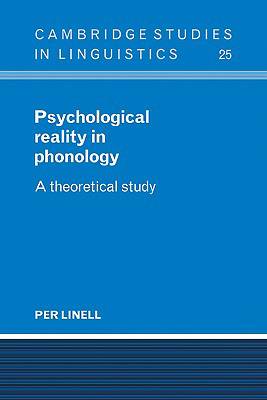
- Afhalen na 1 uur in een winkel met voorraad
- Gratis thuislevering in België vanaf € 30
- Ruim aanbod met 7 miljoen producten
- Afhalen na 1 uur in een winkel met voorraad
- Gratis thuislevering in België vanaf € 30
- Ruim aanbod met 7 miljoen producten
Zoeken
Omschrijving
Generative linguists have always claimed that the transformational models of language offer the best descriptive accounts of language. But they have often made a further and more ambitious claim for these models: that they have some psychological validity and represent our mental organisation of linguistic knowledge. The models are therefore supposed to explain at least some aspects of how, as speakers and listeners, we produce, perceive and understand all human utterances. Dr Linell attacks this claim and particularly its application to phonology and offers fundamental criticisms of the 'orthodox' school of generative phonology associated with Chomsky and Halle. His own positive proposals stress the importance of surface phenomena as opposed to abstract underlying forms and lead to a new typology of phonological rules and a new consideration of the relations between phonology and phonetics and between phonology and morphology. The book will interest a wide range of linguists and some psychologists as well as specialists in phonology and phonetics.
Specificaties
Betrokkenen
- Auteur(s):
- Uitgeverij:
Inhoud
- Aantal bladzijden:
- 312
- Taal:
- Engels
- Reeks:
- Reeksnummer:
- nr. 25
Eigenschappen
- Productcode (EAN):
- 9780521104777
- Verschijningsdatum:
- 19/03/2009
- Uitvoering:
- Paperback
- Formaat:
- Trade paperback (VS)
- Afmetingen:
- 152 mm x 229 mm
- Gewicht:
- 458 g

Alleen bij Standaard Boekhandel
+ 123 punten op je klantenkaart van Standaard Boekhandel
Beoordelingen
We publiceren alleen reviews die voldoen aan de voorwaarden voor reviews. Bekijk onze voorwaarden voor reviews.











